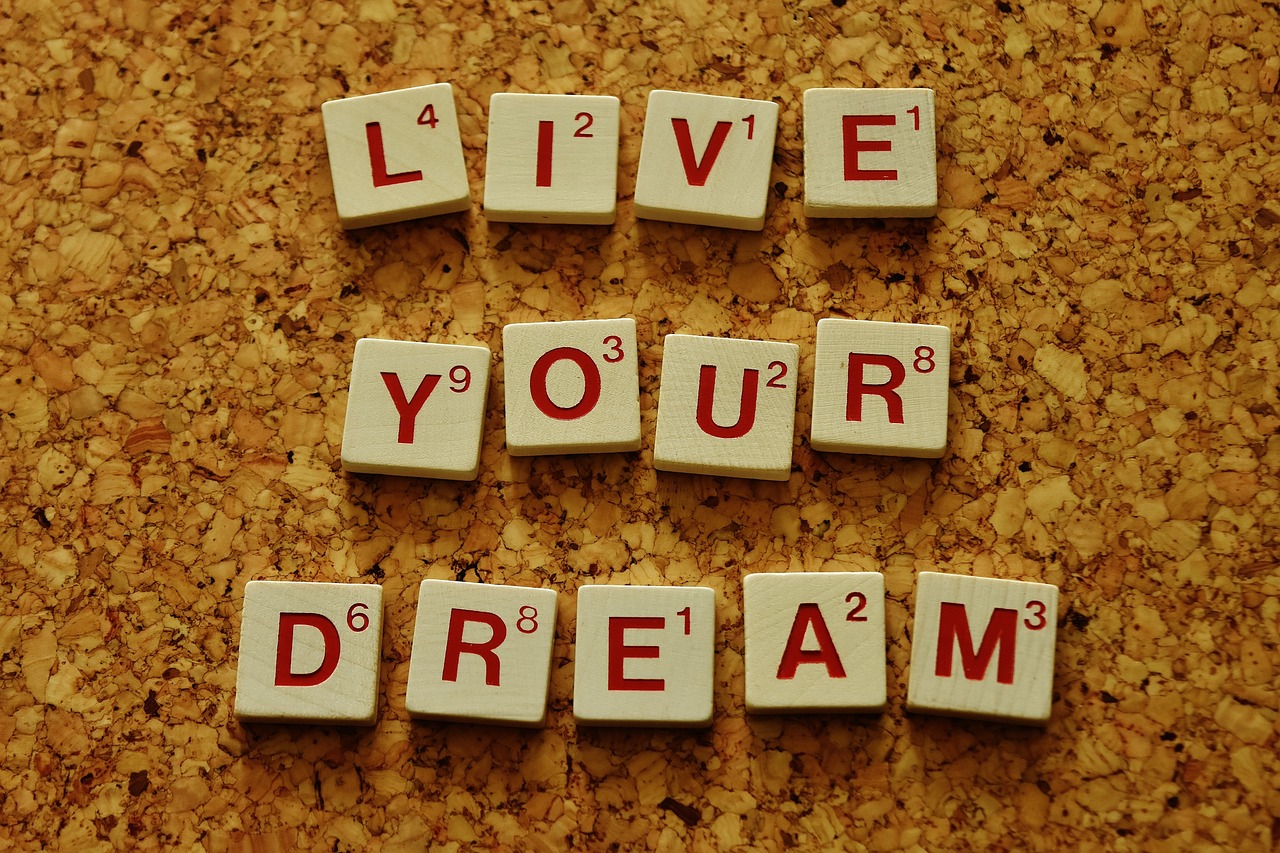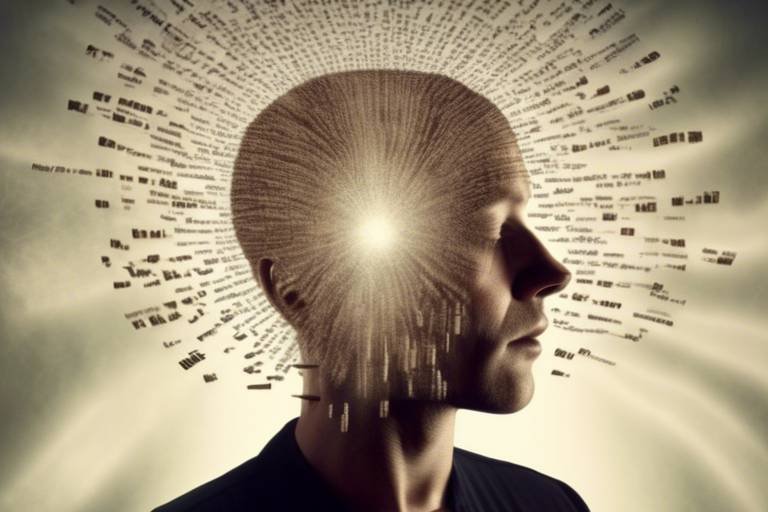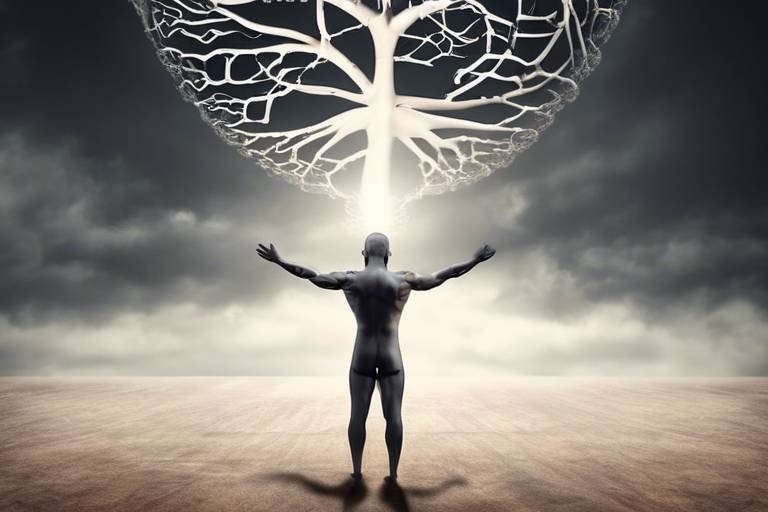The Difference between Mind and Consciousness
Have you ever pondered the intricacies of your own thoughts? What about the feeling of being aware that you're thinking? These two phenomena—mind and consciousness—are often used interchangeably, yet they represent distinct aspects of human experience. Understanding the difference between them can unlock deeper insights into our behavior, emotions, and overall existence. In this article, we will explore the definitions, functions, and implications of both concepts, diving into the fascinating world of psychology and philosophy.
The mind is a complex and multifaceted entity that encompasses our thoughts, emotions, memories, and cognitive processes. It's like a vast library filled with books that represent our experiences and knowledge. When we think of the mind, we often envision the following components:
- Thoughts: The ideas and beliefs that shape our perception of reality.
- Emotions: The feelings that arise in response to our thoughts and experiences.
- Cognitive Processes: The mental activities involved in acquiring knowledge and understanding.
Each of these elements contributes to our overall mental landscape, influencing how we behave and interact with the world around us. The mind is not just a passive observer; it actively engages with our environment, allowing us to solve problems, make decisions, and learn from our experiences.
On the other hand, consciousness is the state of being aware of and able to think about one's own existence, thoughts, and surroundings. Imagine consciousness as a spotlight that illuminates certain aspects of the mind, allowing us to focus on specific thoughts or feelings at any given moment. This awareness is crucial for personal experience and perception, as it helps us navigate our lives with intention and clarity.
Consciousness can be categorized into different types, each serving unique functions in human cognition and awareness:
- Primary Consciousness: This includes basic awareness of sensory experiences and emotions, enabling individuals to respond to their environment instinctively.
- Reflective Consciousness: This higher-order thinking allows individuals to reflect on their thoughts and feelings, facilitating complex decision-making and self-evaluation.
Primary consciousness is akin to the initial spark of awareness—a gut reaction to stimuli. For instance, when you touch something hot, your primary consciousness triggers an immediate response, like pulling your hand away. This form of consciousness is essential for survival, as it helps us react to our environment without deeper reflection.
In contrast, reflective consciousness is where the magic of self-awareness happens. It’s like stepping back and observing your own thoughts, almost as if you're watching a movie of your mind. This ability allows for introspection, enabling us to evaluate our emotions and decisions critically. For example, after a heated argument, reflective consciousness helps us analyze what went wrong and how we can improve our communication in the future.
The mind serves various functions that are crucial for our daily lives. Some of the key functions include:
- Problem-Solving: The mind helps us navigate challenges by analyzing situations and generating solutions.
- Memory Storage: It retains information from our experiences, allowing us to learn and grow over time.
- Emotional Regulation: The mind plays a vital role in managing our emotions, helping us respond appropriately to different situations.
These functions are interdependent, as they collectively shape our behavior and interactions with others.
The relationship between mind and consciousness is complex and intertwined. Consciousness influences mental processes, while the mind affects one’s conscious experiences and awareness. Think of it as a dance—each partner relies on the other to create a harmonious performance. For instance, when we consciously reflect on our thoughts, we engage our cognitive processes to evaluate and make sense of our experiences.
Various philosophical viewpoints offer insights into the nature of mind and consciousness. Some philosophers argue that consciousness is a byproduct of brain activity, while others posit that it exists independently. This debate raises profound questions about the origins and implications of our mental experiences, pushing us to consider what it truly means to be human.
Psychology examines mind and consciousness through various lenses, including cognitive, behavioral, and neuropsychological theories. Each approach contributes to a comprehensive understanding of human mental functions. For example, cognitive psychology focuses on how we process information, while neuropsychology explores the brain's role in shaping our thoughts and consciousness.
1. What is the main difference between mind and consciousness?
The mind encompasses our thoughts, emotions, and cognitive processes, while consciousness refers specifically to our awareness of those thoughts and feelings.
2. Can we have thoughts without being conscious of them?
Yes, there are many subconscious processes that occur without our active awareness, such as instincts and automatic reactions.
3. How do mind and consciousness influence behavior?
Both the mind and consciousness play significant roles in shaping our actions. Our thoughts (mind) inform our decisions, while our awareness (consciousness) helps us reflect on and evaluate those decisions.

Defining Mind
Understanding the concept of the mind is akin to embarking on a journey through a vast landscape of thoughts, emotions, and cognitive processes. It's not just a single entity; rather, it is a complex interplay of various components that shape our human experience and behavior. When we talk about the mind, we often think of it as the seat of our thoughts and feelings—like a control center where decisions are made and emotions are processed. But what does that really mean?
The mind is often described as the collection of mental faculties that enables us to think, perceive, remember, and feel. It encompasses everything from our fleeting thoughts to our deep-seated beliefs, and it plays a crucial role in how we interact with the world around us. Imagine the mind as a bustling city, where different districts represent various functions: one area is dedicated to memory, another to emotions, and yet another to problem-solving. Each district interacts with the others, creating a dynamic environment that influences our actions and reactions.
To dive deeper into the definition of the mind, we can break it down into several key components:
- Thoughts: These are the mental processes that allow us to reason, plan, and make decisions. They can be conscious or subconscious, fleeting or persistent.
- Emotions: Our feelings are integral to the mind's function, influencing our decisions and interactions. They can range from joy and love to anger and sadness.
- Cognitive Processes: This encompasses perception, memory, and attention. These processes are essential for interpreting experiences and forming responses.
The mind is not just a passive receiver of information; it actively engages with the environment, filtering and interpreting stimuli to create our unique experiences. For example, when you hear a song that brings back memories, your mind is not merely processing sound; it's also triggering emotions and recollections from the past, demonstrating how interconnected our mental faculties are.
Moreover, the mind is influenced by various factors, including our upbringing, culture, and personal experiences. Just like a sculptor shapes a block of marble into a work of art, our experiences carve out the contours of our minds, affecting how we think and feel. This dynamic nature of the mind is what makes each person's mental landscape unique.
In summary, defining the mind is not a straightforward task. It is a rich tapestry woven from thoughts, emotions, and cognitive processes that together create the essence of human experience. Understanding this complexity can lead us to better comprehend how we function in our daily lives and the profound impact our minds have on our behaviors and interactions.

Defining Consciousness
Consciousness is one of those elusive concepts that seems simple on the surface yet dives deep into the intricacies of human existence. It's not just about being awake or aware; it's the very essence of our experience as sentient beings. When we talk about consciousness, we're referring to the state of being aware of and able to think about our own existence, thoughts, and surroundings. Imagine it as a spotlight in a dark room, illuminating not just what’s in front of us but also allowing us to reflect on our own thoughts and feelings.
To truly grasp the definition of consciousness, we can break it down into several key aspects:
- Awareness: This is the fundamental element of consciousness. It includes everything we perceive through our senses and our internal thoughts.
- Subjectivity: Consciousness is inherently personal. Each individual experiences their own unique perspective of reality, colored by their emotions, thoughts, and memories.
- Intentionality: Our consciousness often directs our attention and intentions towards specific objects or ideas, allowing us to interact with the world meaningfully.
In essence, consciousness is what makes us who we are. It allows us to engage with the world in a way that is not merely reactive but reflective. For instance, when you see a beautiful sunset, your consciousness not only registers the colors and shapes but also evokes feelings of awe or nostalgia, prompting you to think about your experiences and emotions. This reflective aspect of consciousness distinguishes it from mere awareness, as it involves a deeper level of processing.
Furthermore, the study of consciousness raises fascinating questions about the nature of reality and our place within it. Philosophers and scientists alike ponder whether consciousness is a product of physical processes in the brain or something more ethereal. This ongoing debate is crucial for understanding how we perceive the world and ourselves.
In conclusion, defining consciousness is not merely an academic exercise; it is a gateway to understanding the very fabric of human experience. By examining our consciousness, we gain insights into our thoughts, emotions, and the unique ways we interact with the world around us. As we further explore the depths of consciousness, we uncover the complex interplay between awareness, subjectivity, and intentionality, enriching our understanding of what it means to be human.

Types of Consciousness
When we dive into the ocean of consciousness, we find that it isn't just a single entity but rather a vast landscape filled with different types, each serving its own purpose in the grand scheme of our mental life. Understanding these types is like discovering the layers of an onion; peel one back, and you find another beneath it. The three main types of consciousness—primary consciousness, reflective consciousness, and self-consciousness—each play a vital role in shaping our awareness and interactions with the world around us.
Primary consciousness is the most basic form of awareness, akin to a newborn baby experiencing the world for the first time. It's that raw, immediate perception of sensory experiences and emotions without the interference of deeper thought or reflection. Imagine standing on a beach, feeling the warm sun on your skin and the cool breeze in your hair. In that moment, you are fully present, experiencing the sights and sounds around you without analyzing them. This type of consciousness allows us to respond instinctively to our environment, ensuring our survival and basic functioning.
Moving a step further, we encounter reflective consciousness. This is where things get a bit more intricate. Reflective consciousness involves a higher-order thinking process, allowing us to step back and examine our thoughts and feelings. It's like being the director of a movie, where you not only act in the film but also review the footage to understand the narrative better. For example, when you ponder why you reacted a certain way in a conversation, you're engaging in reflective consciousness. This type enables us to make complex decisions and engage in self-evaluation, helping us learn from our experiences and grow as individuals.
Finally, we arrive at self-consciousness. This type of consciousness is a more advanced form, where we not only recognize our thoughts and feelings but also become aware of how we are perceived by others. It’s like holding a mirror up to ourselves and seeing not just our reflection but also the reactions of those around us. Self-consciousness can be a double-edged sword; while it allows for deeper social interactions and empathy, it can also lead to anxiety and overthinking. Imagine walking into a room full of people and feeling the weight of their gaze upon you—that's self-consciousness in action.
To summarize, the types of consciousness can be viewed as different lenses through which we experience our lives. Each type serves its unique functions:
| Type of Consciousness | Description | Function |
|---|---|---|
| Primary Consciousness | Basic awareness of sensory experiences and emotions. | Immediate response to the environment. |
| Reflective Consciousness | Higher-order thinking and self-evaluation. | Complex decision-making and learning. |
| Self-Consciousness | Aware of one's thoughts and how others perceive them. | Social interactions and empathy. |
In conclusion, the types of consciousness are fundamental to our understanding of the human mind. They shape how we perceive reality, interact with others, and ultimately, how we define our existence. Each type is interconnected, creating a rich tapestry of awareness that influences our thoughts, actions, and emotions.
- What is the difference between mind and consciousness? The mind encompasses all cognitive processes, including thoughts and emotions, while consciousness refers specifically to our awareness of those processes.
- Can consciousness exist without the mind? This is a debated topic in philosophy; some argue that consciousness is a product of the mind, while others believe it can exist independently.
- How do different types of consciousness affect behavior? Each type influences how we respond to our environment, make decisions, and relate to others, shaping our overall behavior and interactions.

Primary Consciousness
When we talk about , we're diving into the realm of our most basic awareness. It's like the foundation of a house—without it, everything else would crumble. This type of consciousness is all about the immediate experience of our surroundings and our feelings in response to them. Imagine walking through a vibrant park on a sunny day; the colors of the flowers, the warmth of the sun on your skin, and the sound of children laughing—this is primary consciousness in action. It allows us to be present in the moment, reacting instinctively to stimuli without the need for deep reflection or analysis.
Primary consciousness is crucial for survival. It enables us to respond to danger, such as when we instinctively jump back from a hot stove or flinch at the sound of a loud bang. These reactions are not governed by complex thoughts or deliberations; instead, they stem from a basic awareness of our environment and our emotional responses to it. In essence, primary consciousness allows us to navigate the world with a sense of immediacy and urgency.
To further illustrate this concept, let's consider some key characteristics of primary consciousness:
- Immediate Awareness: It encompasses the direct perception of sensory experiences, such as sights, sounds, and sensations.
- Emotional Responses: It includes basic emotional reactions, such as joy, fear, and sadness, which arise from our interactions with the environment.
- Instinctive Reactions: These are automatic responses to stimuli that do not require conscious thought, allowing for quick decision-making.
In the grand tapestry of consciousness, primary consciousness serves as the thread that weaves our most fundamental experiences together. It’s the raw material from which more complex forms of consciousness, like reflective or self-consciousness, are built. Without this basic awareness, we would struggle to form memories or engage in higher-order thinking.
Moreover, understanding primary consciousness allows us to appreciate the importance of mindfulness in our daily lives. By recognizing and embracing our immediate experiences, we can cultivate a deeper connection to ourselves and the world around us. So, the next time you find yourself lost in thought, remember the beauty of simply being aware—it's the essence of primary consciousness.
- What is the difference between primary consciousness and reflective consciousness? Primary consciousness deals with immediate awareness of sensory experiences, while reflective consciousness involves deeper thinking and self-evaluation.
- Can primary consciousness be developed or enhanced? Yes, practices like mindfulness and meditation can help enhance our awareness of primary consciousness.
- Why is primary consciousness important? It forms the basis for our interactions with the environment and is essential for survival and emotional responses.

Reflective Consciousness
Reflective consciousness is a fascinating aspect of our mental landscape, enabling us to engage in higher-order thinking. Imagine it as the spotlight in a dark room; while primary consciousness allows us to see the shapes and colors around us, reflective consciousness brings those shapes into sharp focus, letting us analyze and understand them deeply. This form of consciousness is not just about being aware; it’s about reflecting on that awareness, which opens the door to complex decision-making and self-evaluation.
When we engage in reflective consciousness, we often find ourselves asking questions about our thoughts and feelings. For instance, we might wonder why we feel a certain way about a situation, or we might analyze our decision-making process after an event has occurred. This introspection allows us to learn from our experiences, fostering personal growth and emotional intelligence. In essence, reflective consciousness is like having an internal dialogue, a conversation with oneself that can lead to profound insights and understanding.
To illustrate the significance of reflective consciousness, consider the following scenarios where it plays a crucial role:
- Decision-Making: When faced with a choice, reflective consciousness allows us to weigh the pros and cons, considering past experiences and future implications.
- Emotional Regulation: Reflecting on our emotions helps us manage them better, leading to healthier responses in challenging situations.
- Self-Assessment: Regular reflection enables us to evaluate our goals and progress, making adjustments as necessary to align with our values.
In psychology, reflective consciousness is often linked to metacognition—the awareness of one’s own thought processes. This concept is crucial for learning and problem-solving, as it empowers individuals to monitor and control their cognitive activities. By understanding how we think, we can improve our learning strategies and enhance our problem-solving capabilities. Think of it as tuning into a radio station; the clearer the signal, the better we can understand the music being played.
Moreover, reflective consciousness can also foster empathy. By reflecting on our own experiences and emotions, we become more adept at understanding others’ perspectives. This ability to put ourselves in someone else's shoes is vital for building strong relationships and effective communication. It’s like being a mirror, reflecting not just our own thoughts but also the feelings and experiences of those around us.
In conclusion, reflective consciousness is a vital component of our cognitive toolkit. It allows us to navigate the complexities of life with greater awareness and understanding, shaping our decisions and emotional responses in meaningful ways. By harnessing the power of reflection, we can unlock our potential for personal growth and deeper connections with others.

Functions of the Mind
The mind is a fascinating and intricate entity, functioning as the command center for a plethora of human activities. It’s not just a passive observer but an active participant in our daily lives. Think of the mind as a complex orchestra, where each instrument plays a vital role in creating a harmonious symphony of thoughts, emotions, and actions. This orchestration allows us to navigate through life, solve problems, and interact with others effectively.
One of the primary functions of the mind is problem-solving. Every day, we encounter challenges that require us to think critically and creatively. Whether it’s deciding what to wear in the morning or tackling a complex work project, our minds engage in a dynamic process of weighing options, predicting outcomes, and making decisions. This cognitive ability is akin to being a detective, piecing together clues to arrive at a logical conclusion.
Another essential function of the mind is memory storage. Memories are the threads that weave the fabric of our identity. They allow us to learn from past experiences, inform our present actions, and guide our future decisions. The mind categorizes memories into short-term and long-term storage, much like a librarian organizing books on a shelf. This organization helps us retrieve the information we need when we need it, making our lives more manageable.
Moreover, the mind plays a crucial role in emotional regulation. Our emotions can be as unpredictable as the weather, but the mind helps us navigate through these emotional storms. It enables us to recognize our feelings, understand their origins, and respond appropriately. For instance, when faced with stress, the mind can guide us to practice mindfulness or engage in deep breathing exercises, helping to restore balance and calmness.
To summarize, the functions of the mind can be categorized into three major areas:
- Problem-Solving: Engaging in critical and creative thinking to overcome challenges.
- Memory Storage: Organizing and retrieving information to inform decisions and shape identity.
- Emotional Regulation: Managing emotions to maintain mental well-being and respond effectively to situations.
In addition to these core functions, the mind also influences our social interactions. It allows us to empathize with others, understand social cues, and communicate effectively. Just as a skilled musician listens to their fellow players to create a beautiful piece, our minds must attune to the emotions and reactions of those around us to foster meaningful connections.
Ultimately, the mind is a powerhouse of activity, driving every aspect of our lives. Its functions are interconnected, working together to help us navigate the complexities of existence. Understanding these functions not only enriches our appreciation of the mind but also equips us with the tools to enhance our mental capabilities and improve our overall quality of life.
What is the primary function of the mind?
The primary function of the mind includes problem-solving, memory storage, and emotional regulation, all of which are essential for navigating daily life.
How does the mind influence our emotions?
The mind plays a key role in recognizing, understanding, and managing our emotions, allowing us to respond appropriately to various situations.
Can we improve the functions of our mind?
Yes! Engaging in activities like reading, puzzle-solving, and mindfulness practices can enhance cognitive functions and emotional regulation.

Interconnection Between Mind and Consciousness
The relationship between the mind and consciousness can be likened to a dance, where each partner influences the other's movements in a seamless flow. At first glance, they may appear to be separate entities, but a deeper exploration reveals that they are intricately intertwined. The mind encompasses a vast array of cognitive functions, including thoughts, memories, and emotions, while consciousness serves as the stage upon which these mental processes unfold. This interplay is crucial for understanding how we perceive reality and interact with the world around us.
One of the most fascinating aspects of this relationship is how consciousness can shape the way we think and feel. For instance, when we are fully aware of our emotions—perhaps feeling joy or sadness—our conscious experience can influence our thoughts, leading to a more profound understanding of our feelings. This awareness allows us to navigate complex social situations and make informed decisions. Conversely, the mind's processes can also affect our consciousness. Have you ever found yourself lost in thought, only to realize that you weren’t fully present in the moment? This is a prime example of how our mental distractions can cloud our conscious awareness.
Moreover, consciousness plays a pivotal role in our ability to reflect on our thoughts and experiences. This reflective consciousness enables us to engage in metacognition—thinking about our thinking. It allows us to evaluate our beliefs, challenge our assumptions, and ultimately grow as individuals. Without this self-awareness, we might find ourselves stuck in repetitive patterns of thought and behavior, unable to break free from the confines of our own minds.
To illustrate this interconnection further, consider the following table that highlights how various mental processes and conscious experiences interact:
| Mental Process | Conscious Experience | Impact on Behavior |
|---|---|---|
| Thoughts | Awareness of beliefs | Decision-making |
| Emotions | Feeling states | Social interactions |
| Memories | Recall of past experiences | Learning and adaptation |
This table illustrates that our mental processes are not just isolated functions; they actively shape our conscious experiences, which in turn influence our behaviors. The dance between mind and consciousness is a dynamic one, where awareness can lead to growth, and mental processes can either enhance or hinder our conscious experiences.
In summary, the interconnection between mind and consciousness is a complex yet fascinating relationship that plays a vital role in shaping our human experience. By understanding how these two elements interact, we can gain insights into our behaviors, improve our emotional regulation, and enhance our overall well-being. So, the next time you find yourself pondering your thoughts or emotions, remember that you’re not just a passive observer; you’re an active participant in this intricate dance.
- What is the main difference between mind and consciousness?
The mind refers to the collection of cognitive processes, including thoughts, emotions, and memories, while consciousness is the state of being aware of these mental activities.
- How do mind and consciousness influence each other?
Consciousness can shape thoughts and emotions, while mental processes can affect our level of awareness and presence in the moment.
- Can consciousness exist without the mind?
This is a debated topic in philosophy, but most agree that consciousness is intricately linked to mental processes, making it difficult to separate the two completely.

Philosophical Perspectives
The exploration of mind and consciousness has captivated philosophers for centuries, leading to a rich tapestry of theories and debates that seek to unravel the complexities of human experience. At the heart of these discussions lies a fundamental question: What is the nature of consciousness, and how does it relate to the mind? Various philosophical perspectives offer unique insights, shaping our understanding of these concepts.
One prominent viewpoint is dualism, famously advocated by René Descartes. Dualists argue that the mind and body are distinct entities, with the mind representing a non-physical substance that interacts with the physical body. This perspective raises intriguing questions about the nature of consciousness: If the mind is separate from the body, how do they communicate? Descartes famously posed the idea of the "ghost in the machine," suggesting a mysterious interplay between mental and physical states.
In contrast, materialism posits that everything about the mind can be explained through physical processes. According to materialists, consciousness arises from complex biochemical interactions within the brain. This perspective emphasizes the importance of neuroscience in understanding mental phenomena, suggesting that as we learn more about brain function, we will also uncover the secrets of consciousness. However, critics argue that materialism struggles to account for subjective experiences—how does a physical process give rise to the rich tapestry of feelings, thoughts, and perceptions that define our conscious experience?
Another intriguing perspective is idealism, which posits that consciousness is the primary reality, and the material world is a manifestation of the mind. Philosophers like George Berkeley argued that to be is to be perceived, suggesting that objects only exist when they are observed. This viewpoint flips the traditional understanding on its head, leading to fascinating implications about the nature of reality itself. If consciousness shapes our perception of the world, how do we define existence?
Furthermore, panpsychism presents a unique angle, proposing that consciousness is a fundamental feature of the universe, present in all matter. This perspective suggests that even the simplest particles possess some form of consciousness. It challenges the notion that consciousness is exclusive to complex organisms, inviting us to reconsider our relationship with the natural world. If everything has a degree of consciousness, what does that mean for our understanding of intelligence and awareness?
To summarize the philosophical perspectives on mind and consciousness, consider the following table:
| Philosophical Perspective | Key Idea | Notable Philosopher(s) |
|---|---|---|
| Dualism | The mind and body are distinct entities. | René Descartes |
| Materialism | Everything about the mind can be explained through physical processes. | Various neuroscientists |
| Idealism | Consciousness is the primary reality; the material world is a manifestation of the mind. | George Berkeley |
| Panpsychism | Consciousness is a fundamental feature of the universe, present in all matter. | Galen Strawson |
In conclusion, the philosophical perspectives surrounding mind and consciousness are as diverse as they are profound. Each viewpoint offers a unique lens through which we can examine our existence and experience. As we continue to explore these ideas, we are reminded that the journey to understand consciousness is not just an intellectual exercise but an exploration of what it means to be human.
- What is the difference between mind and consciousness? Mind refers to the collection of cognitive processes, while consciousness is the state of being aware of those processes.
- Can consciousness exist without the mind? This is a debated topic; some philosophers argue that consciousness requires a functioning mind, while others suggest it may exist independently.
- How does philosophy influence our understanding of psychology? Philosophical theories provide foundational insights that shape psychological research and theories about human behavior and cognition.

Psychological Approaches
When we dive into the realm of psychology, the exploration of mind and consciousness takes on a fascinating dimension. Different psychological approaches provide us with a lens through which we can understand how these two concepts interact and influence human behavior. From cognitive theories to behavioral frameworks, each perspective offers a unique insight into the complex interplay between our thoughts, feelings, and awareness.
One of the most prominent approaches is the cognitive perspective, which emphasizes the role of mental processes in shaping our experiences. Cognitive psychologists argue that our thoughts and beliefs significantly influence our emotions and behaviors. For instance, when faced with a challenging situation, the way we think about that challenge can determine our emotional response. Are we likely to view it as a threat or an opportunity? This perspective highlights the importance of self-awareness and reflective consciousness, as understanding our cognitive patterns can lead to better emotional regulation.
On the other hand, the behavioral approach focuses on observable behaviors rather than internal mental states. Behaviorists argue that our actions are shaped by environmental stimuli and past experiences. This perspective can sometimes feel like a game of cause and effect, where our reactions are conditioned responses to various triggers. For example, if someone has had a negative experience with public speaking, they may develop a fear of similar situations. Here, consciousness plays a role in recognizing and responding to these learned behaviors, but the focus remains on how the environment shapes the mind.
Then we have the neuropsychological approach, which delves into the biological underpinnings of the mind and consciousness. This perspective examines how brain structures and functions influence our thoughts and awareness. Advances in neuroscience have revealed that different areas of the brain are responsible for various cognitive processes. For example, the prefrontal cortex is crucial for decision-making and self-reflection, while the amygdala is involved in emotional responses. Understanding these connections helps us appreciate how our mental states are intricately linked to our biological makeup.
To illustrate these approaches more clearly, let’s consider a table that summarizes their key characteristics:
| Approach | Focus | Key Concepts |
|---|---|---|
| Cognitive | Mental processes | Thoughts, beliefs, self-awareness |
| Behavioral | Observable behavior | Conditioning, environmental stimuli |
| Neuropsychological | Biological basis | Brain structures, cognitive functions |
As we can see, each psychological approach offers valuable insights into the relationship between the mind and consciousness. They collectively help us understand how our internal experiences shape our actions and how external factors influence our mental states. This intricate dance between mind and consciousness is what makes human psychology so captivating.
In conclusion, exploring these psychological perspectives not only enriches our understanding of ourselves but also enhances our ability to navigate the complexities of life. By integrating insights from cognitive, behavioral, and neuropsychological approaches, we can develop a more holistic view of human behavior and consciousness.
- What is the main difference between mind and consciousness?
While the mind encompasses all mental processes, including thoughts and emotions, consciousness specifically refers to the awareness of those thoughts and surroundings. - How do psychological approaches help in understanding consciousness?
Different psychological approaches provide frameworks to analyze how mental processes, behaviors, and biological factors contribute to our conscious experience. - Can consciousness exist without the mind?
This is a debated topic in philosophy and psychology, but many agree that consciousness is inherently tied to mental processes.
Frequently Asked Questions
- What is the difference between mind and consciousness?
The mind encompasses a range of cognitive processes, including thoughts, emotions, and memories, while consciousness refers specifically to the awareness of those processes. In simpler terms, think of the mind as a vast library of experiences and knowledge, whereas consciousness is the librarian who is aware of what’s currently being accessed and understood.
- What are the types of consciousness?
Consciousness can be categorized into several types, including primary consciousness, reflective consciousness, and self-consciousness. Primary consciousness is about basic awareness of sensory experiences, reflective consciousness involves thinking about one’s thoughts, and self-consciousness is the awareness of oneself as a separate entity in the world.
- How does the mind influence consciousness?
The mind plays a crucial role in shaping our conscious experiences. Our thoughts, memories, and emotions can color our perception of reality, effectively acting like a filter through which we interpret our surroundings. For instance, if you’re feeling anxious, your mind may focus on potential threats, altering your conscious experience of safety.
- Can consciousness exist without the mind?
This is a hotly debated topic in both philosophy and psychology. Some argue that consciousness is a product of the mind's activities, suggesting that without cognitive processes, there can be no awareness. Others propose that there may be a form of consciousness that exists independently of complex mental functions, akin to a basic awareness of existence.
- What are the functions of the mind?
The mind serves several essential functions, including problem-solving, emotional regulation, and memory storage. These functions are interlinked, as effective problem-solving often requires recalling past experiences and managing emotions to make rational decisions.
- How do philosophical perspectives differ on mind and consciousness?
Philosophical perspectives vary widely, with some schools of thought viewing the mind and consciousness as separate entities, while others see them as intertwined aspects of human existence. For example, dualists believe in the separation of mind and body, whereas materialists argue that mental processes are entirely rooted in physical brain functions.
- What psychological approaches study mind and consciousness?
Psychology examines mind and consciousness through various lenses, including cognitive psychology, which focuses on mental processes; behavioral psychology, which studies observable behaviors; and neuropsychology, which looks at the brain's role in mental functions. Each approach contributes to a holistic understanding of how we think and perceive the world.



















